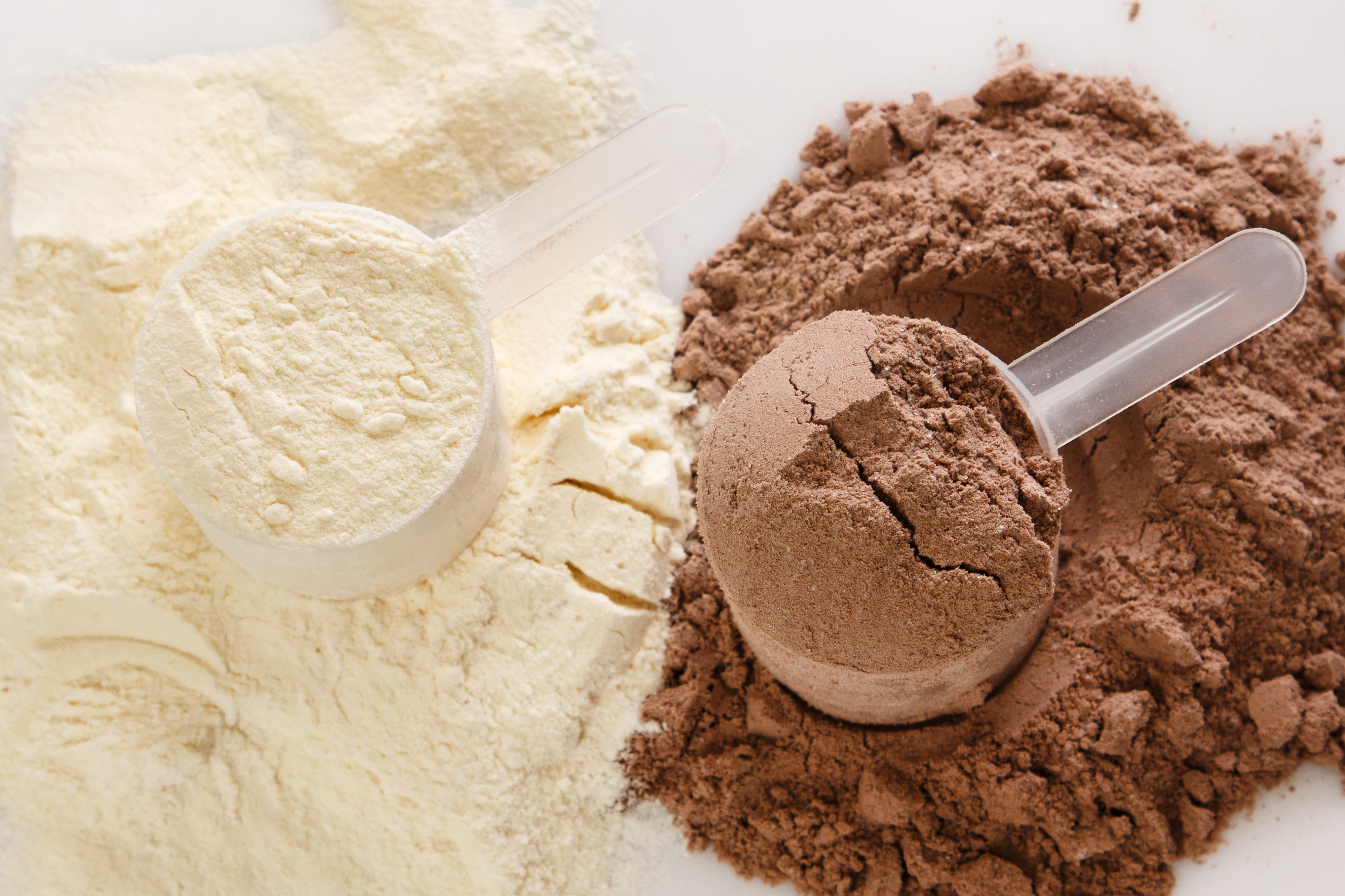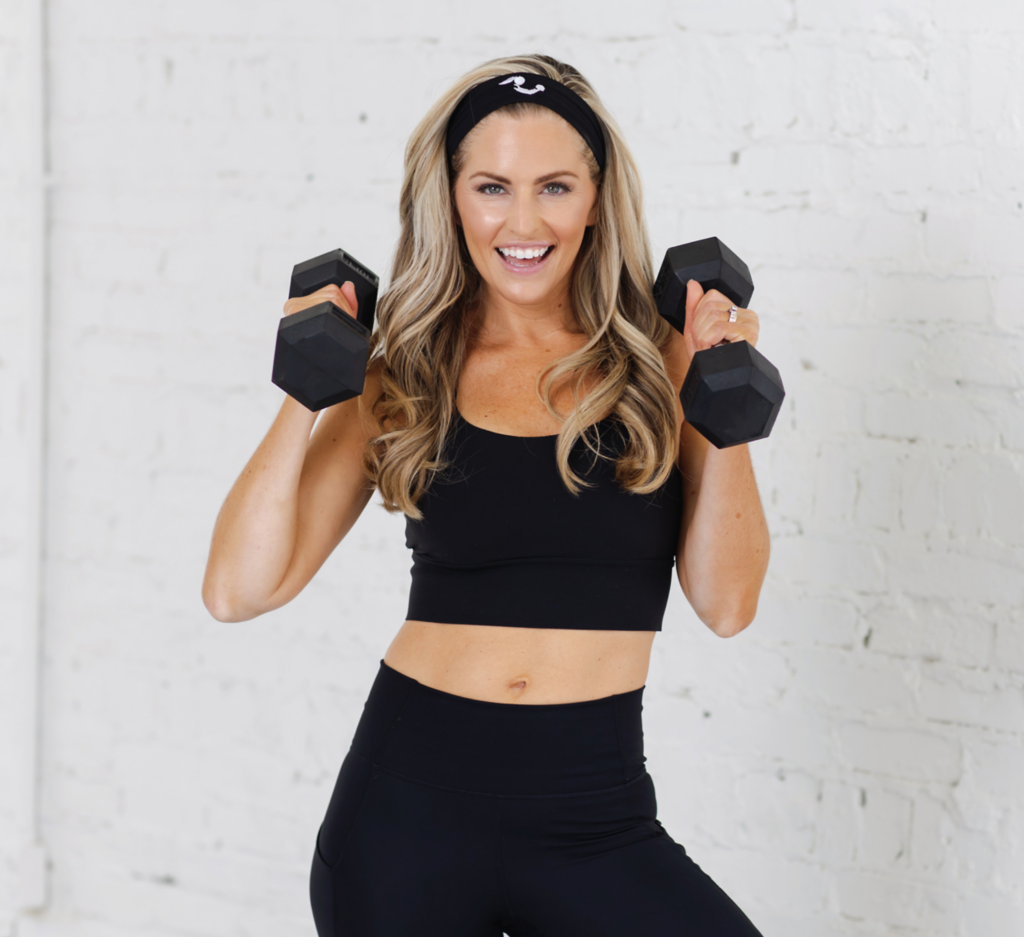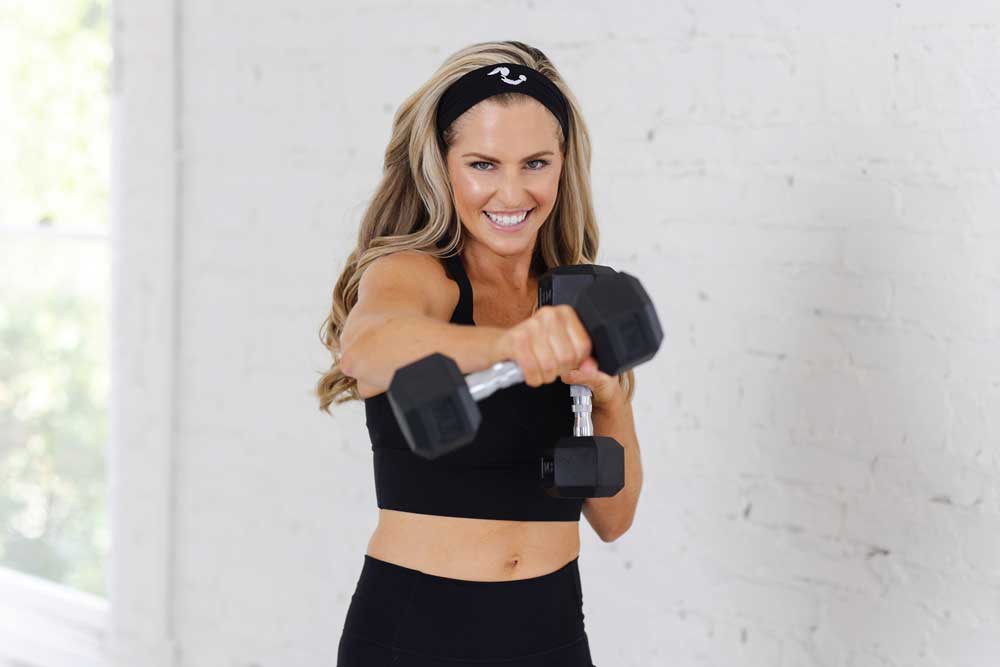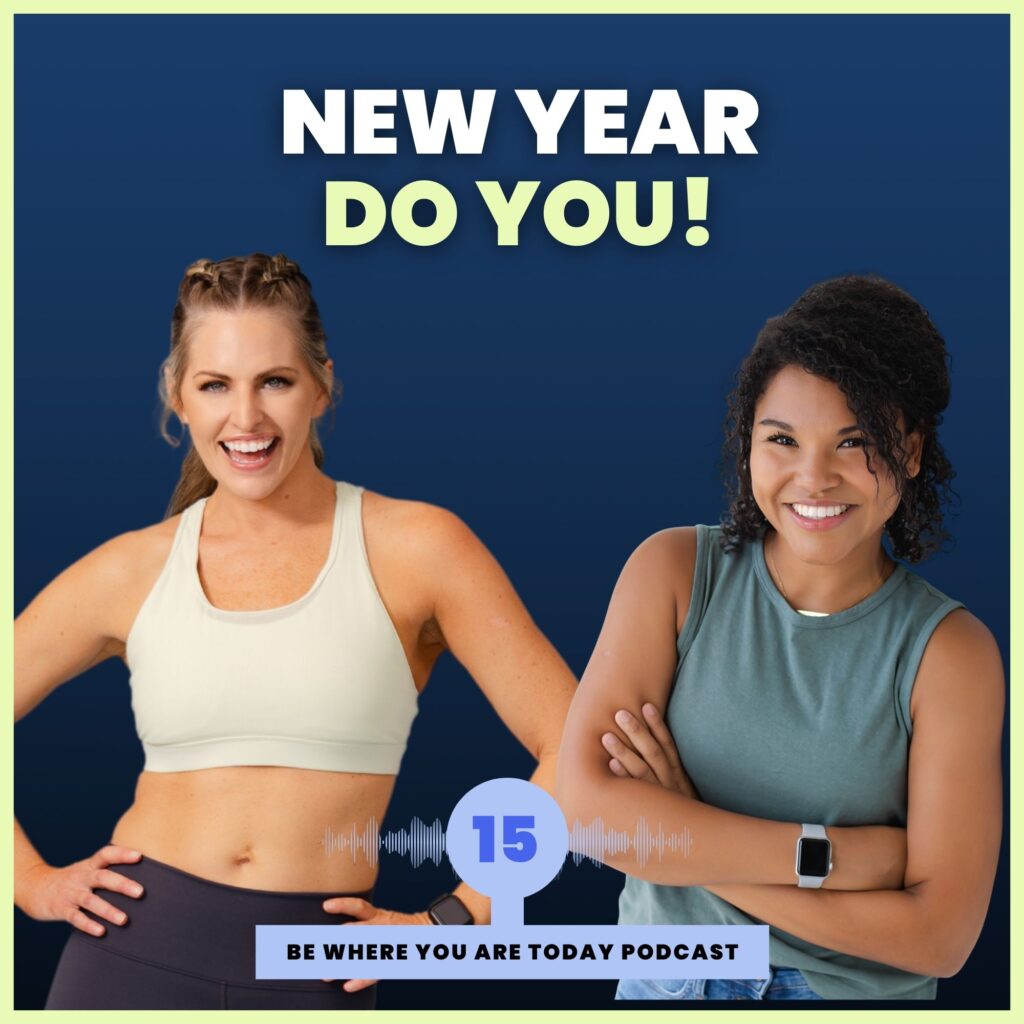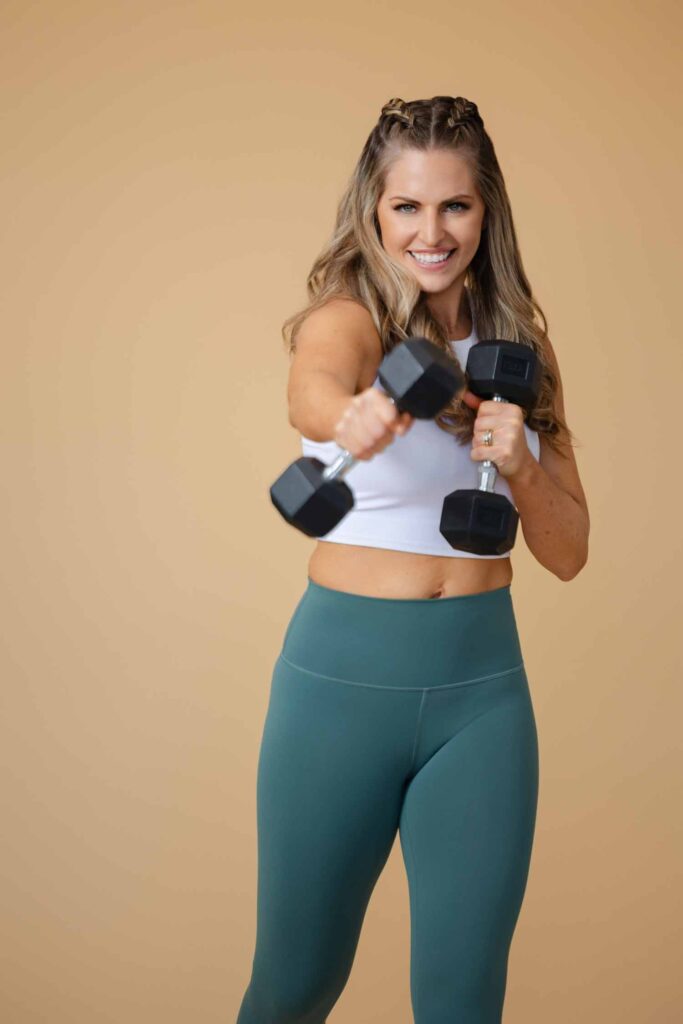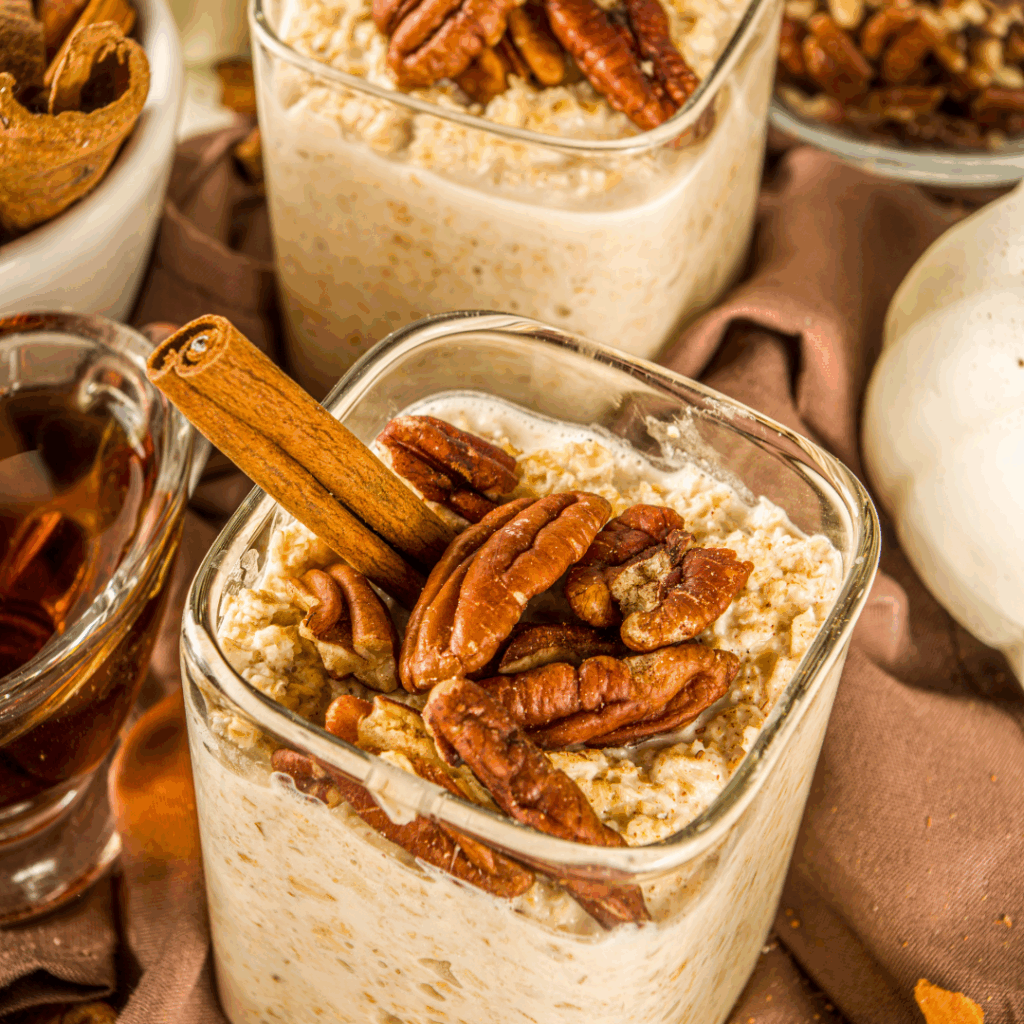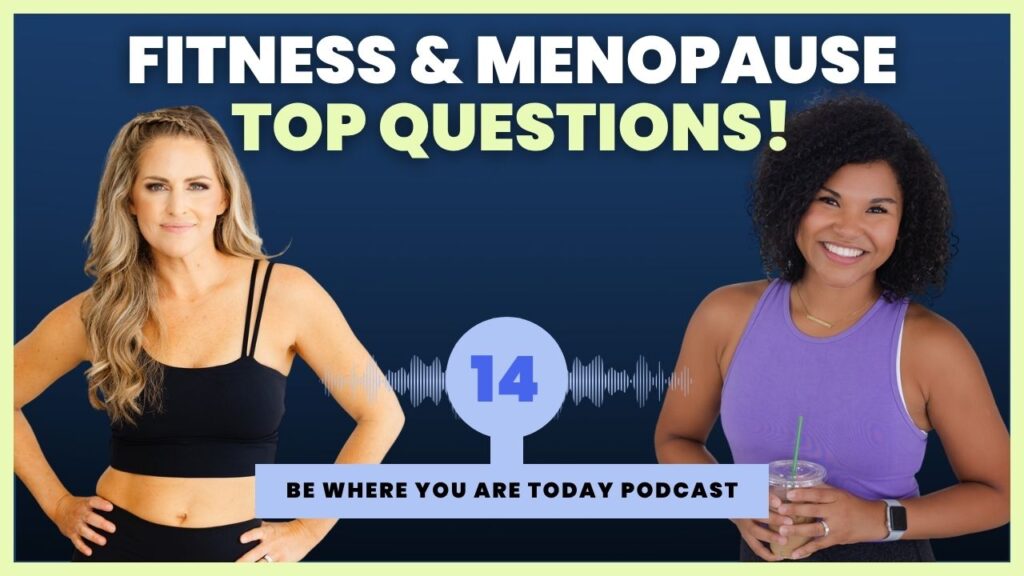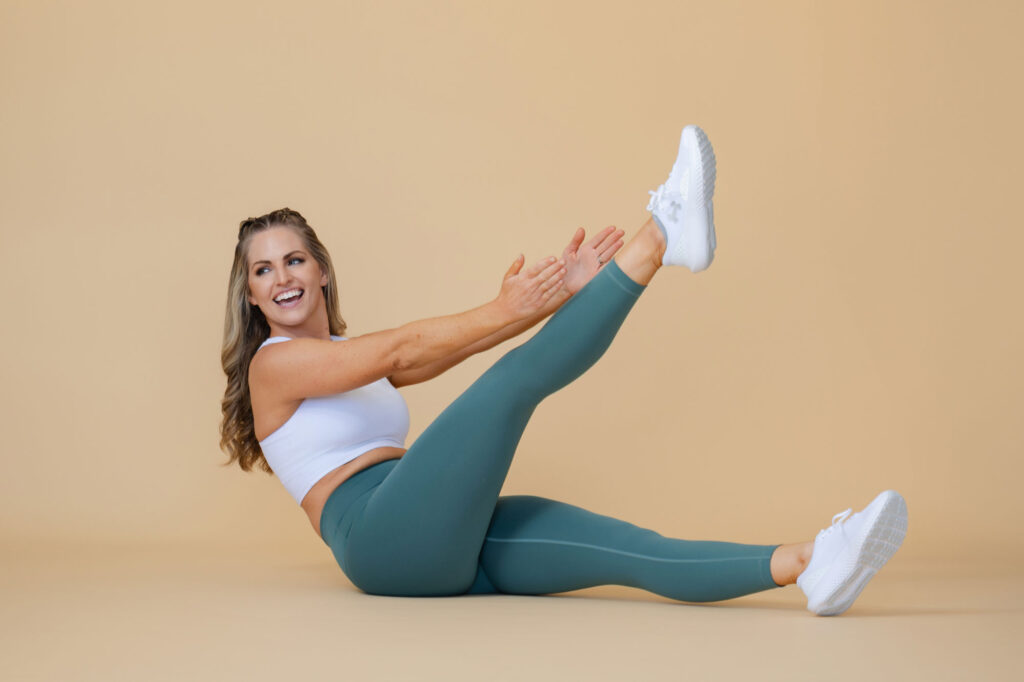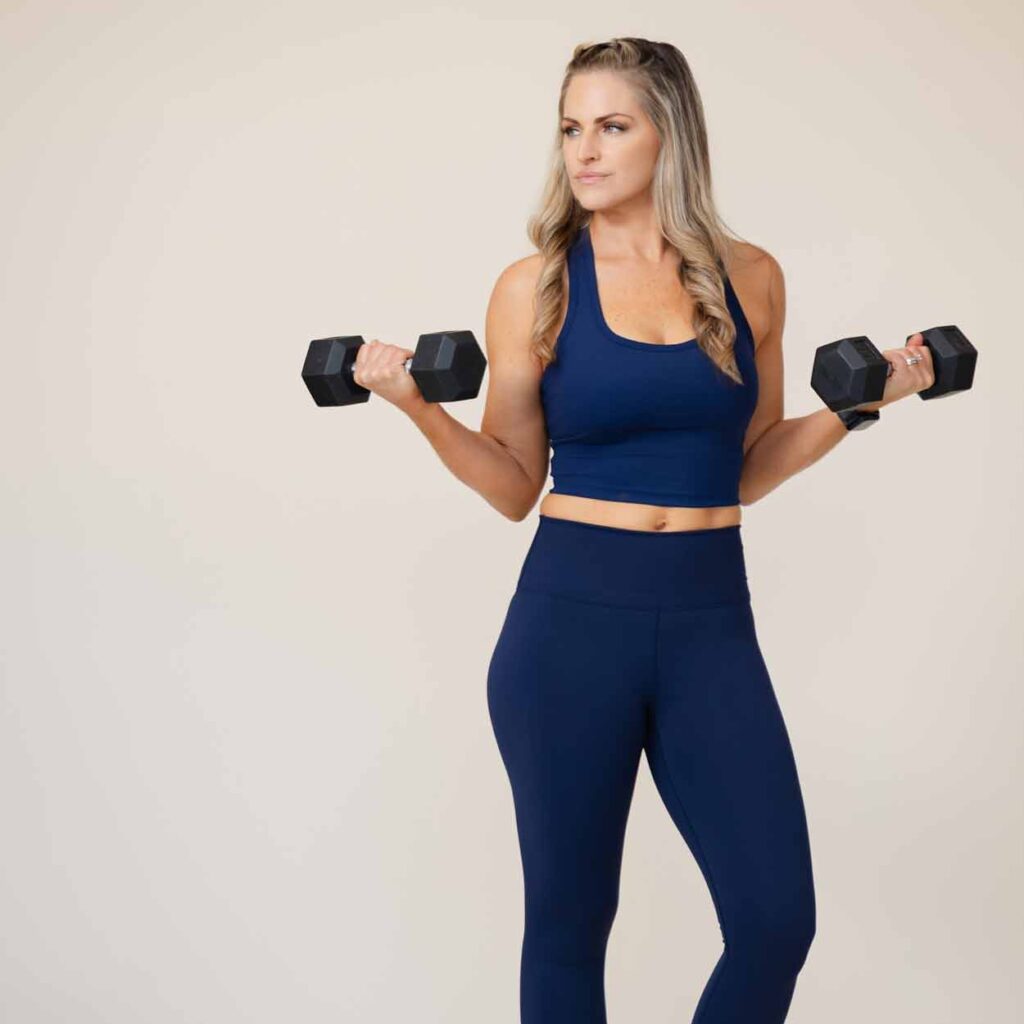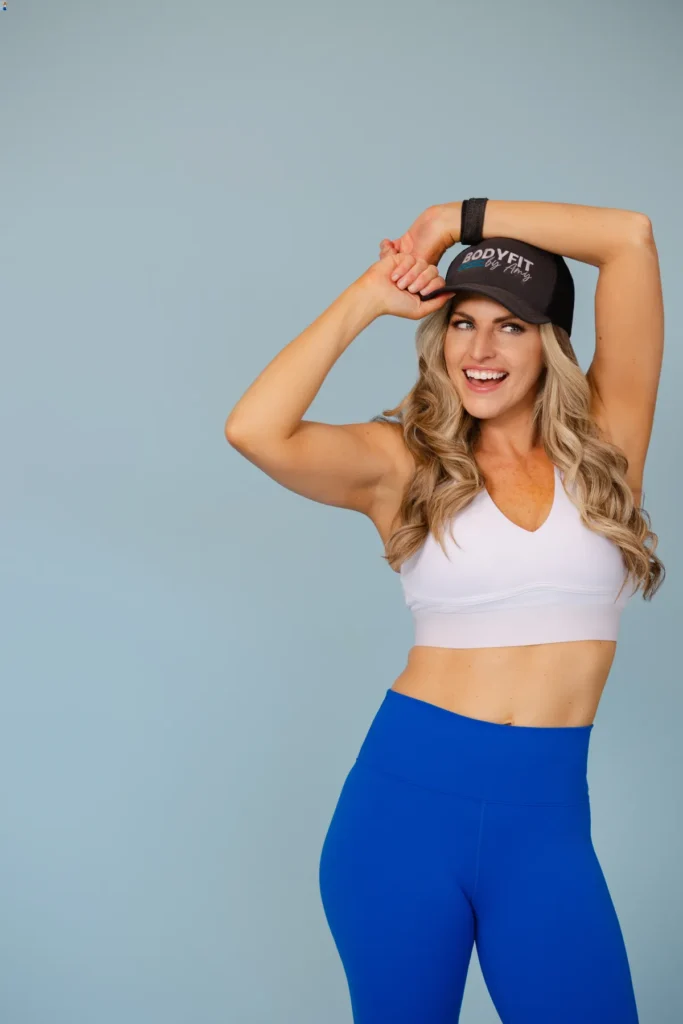As a dietitian, I get asked many nutrition questions, and right up there, at the top, are questions about protein powder. These days, everyone and their neighbor are using protein powder in some form, so it is only natural for you to wonder if a protein powder is appropriate for you. As protein powders increase in popularity (BTW, it’s a $100 billion industry!), it’s essential to arm yourself with evidence-based information to decide whether a powder suits your needs and budget. Let’s get ALL your questions answered so you go from confused to confident!
What is protein powder?
Protein powders are concentrated and powdered forms of protein that come from plants or animals. The most common protein powders are made from eggs, milk (whey and casein), peas, rice, soy, and hemp. Most protein powders have added sugars, natural or artificial sweeteners, flavors, gums, and colors to improve their taste, appearance, and texture.
Why do people use a protein powder?
People turn to protein powders to lose weight, gain weight, increase protein intake, or, most commonly, increase muscle mass. Many people use protein powders as meal replacements due to their convenience and ease.
Who benefits from protein powders?
Protein powders are great for people who don’t enjoy many traditional protein foods. Many vegans enjoy using protein powder in addition to other plant-based proteins to increase variety. Protein powders are also great for people undergoing cancer treatment, those with mouth issues as powders don’t require chewing, or those with increased protein needs.
Can the average person benefit from protein powder?
Sure! I like to use protein powder for ease and convenience, but I do not rely on it daily. I recommend using protein powders in meals that usually don’t have much protein, like pancakes, waffles, and oatmeal. Adding protein to these carbohydrate-rich foods can help manage hunger levels, stabilize blood sugar, maximize muscle protein synthesis, and keep you satisfied longer. Protein powders also make a great addition to smoothies when you don’t have another protein source to add to them.
Are protein powders worth the cost?
You don’t need to invest in protein powder! You can – just as easily – add eggs, cottage cheese, beans (yes! beans!), silken tofu, or Greek yogurt to waffles, pancakes, smoothies, or oatmeal to increase the protein content without shelling out money on a powder.
Bottom line? I recommend them to people who want to try them and can afford them. But it’s not a requirement – even if you work out or want to build muscle.
…so, what is a dietitian’s top choice for protein?
Real food! Natural food sources (and branched-chain amino acids) like eggs, poultry, fish, beans, yogurt, lentils, edamame, or quinoa provide high-quality protein that’s cheaper, less processed, and packed with additional nutrients.
Do people get plenty of protein?
My original blog mentioned that most people get plenty of protein. I do not believe this to be true anymore. As I began working with clients individually, I’ve pulled back on this statement as I noticed most of my clients and people I work with need to eat more protein.
So, how much protein do you need?
Aim for at least 20 grams of protein at meals. But even better? Aim for 30 grams of protein at meals. I love recommending this protein calculator to determine your protein needs. You may need to scroll down until you see the Protein Intake Calculator section, where you can enter your information.
By the way, we have no ties or connection with the calculator website I shared. As a dietitian, I am always looking for evidence-based, accurate, and free tools for my clients, and I have found this one to be the best!
Do I need to use a protein powder to build muscle?
No! Many believe protein powder is a particular protein formulated explicitly for workouts or muscle building. The truth is protein powder is the same type of protein as any other protein food. It’s just protein in isolated and powder form. You get the same thing (plus other nutrients) from a piece of chicken or a couple of eggs. When people ask me about using protein powder for muscle building or recovery, it’s the same as asking me how to use chicken or eggs. There’s nothing inherently miraculous about protein powders and being fit. You can build all the muscle you want and reach your goals without ever touching a protein powder.
Can a protein powder help me lose weight?
Sure. You will likely lose weight if you trade your 850-calorie breakfast from the drive-through for a protein powder and water shake, not because of some unicorn magic in the protein powder, but because you are eating fewer calories. Fewer calories create a calorie deficit. Calorie deficit = weight loss.
Okay, so I want to use protein powder. Which one is better, plant protein or whey protein?
We used to think whey protein was the gold standard because it comes from milk. Animal proteins (like milk) have all the required components to make a complete protein. They are also highly bioavailable to our bodies. But, as researchers have studied plant proteins more extensively, we now understand that plants can provide complete proteins as effectively as animals. They are both fine, so it comes down to your personal preferences.
Choose a plant protein powder if:
- You have a milk allergy or lactose intolerance.
- You don’t like the taste of dairy.
- You avoid animal products for personal, ethical, or environmental reasons.
Choose dairy-based if:
- You like dairy
- Dairy does not upset your stomach.
Note: dairy-based protein powders tend to be cheaper, so if you can tolerate dairy fine, this option will be more cost-effective.
How do I choose a good kind of whey protein powder?
Take a peek at the ingredient list. You want the ingredient list to say, “whey protein isolate.” You will often find protein powders with “whey protein concentrate” or a mixture of both. Isolate means that they have isolated the protein from the source. With this, you get at least 90% protein in your protein powder, which is excellent. If you choose a concentrate, the protein powder is a concentrate of proteins, lactose, and milk fats, which means that you can get 30% – 89% protein. If you take a protein powder, you want it to have mostly protein, so an isolate is the best choice. Also, the isolate tends to have less lactose, so many people tolerate it a little bit better than a concentrate. Some protein powders combine isolates and concentrates. Those are alright, too – they make the product a little cheaper, and you still get decent quality.
How do I choose a good kind of plant-protein powder?
Look for one that has a blend of different plant proteins. Plant-based protein powders get looked down upon because of their lower amino acid content, leucine. A combination of plant proteins can make plant-protein powders comparable to the quality of animal protein powders. That said, a protein powder with just one plant type is also a solid choice, especially if you consume other protein-rich foods throughout your day.
Is collagen the same as a protein powder?
Even though collagen is technically a protein, it is an incomplete protein (meaning it doesn’t have all the amino acids that a piece of chicken would). I love to think of collagen as a “booster” in my smoothies or add a bit of creaminess to my coffee, but I never use it to replace eggs or a protein powder.
Are protein powders safe or created equally?
Nope. Heavy metal contamination is a concern with protein powders. Also, many protein powders have a lot of added sugar, making them comparable to an indulgent dessert. Many powders have artificial sweeteners or sugar alcohols, which can cause digestive distress in some people.
Are protein powders regulated for quality and safety?
You should know that the FDA does not approve dietary supplements for safety, effectiveness, or labeling before they are sold to the public. Dietary supplement companies are responsible for ensuring that their products are safe and accurately labeled. Unfortunately, this is where the chaos begins. Since no “big brother” regulates this, we often hear stories about protein powders having dangerous levels of heavy metals (like lead), far more sugar and less protein than the label states, and undisclosed ingredients like medications.
Here’s a wild example. A protein powder company came under fire after a secret investigation revealed that one of their powders contained 21% of the protein promised and 1814% more sugar than the label indicated.
Is there anything I can do to get a good quality protein powder?
Yes! Choose a product with third-party certification, such as NSF Certified for Sport or Informed-Sport. These certifications guarantee that the protein powder you buy does not contain unsafe levels of contaminants (like heavy metals), prohibited substances, or masking agents. These seals ensure that what is on the label matches what is inside the product. Even if you are not a professional athlete or Olympian, I recommend seeking these sports certifications because they are the most rigorous.
Are protein powders safe for pregnant women?
Yes (if you choose a third-party tested one with the certifications I mentioned above), but it’s always best to check with your health provider. Many protein powders have added vitamins and minerals. While toxicities are rare, you want to avoid getting too much of certain nutrients, especially if taking a prenatal multivitamin.
Are protein powders safe for my kids?
It depends. Since protein powders are not regulated, heavy metal contamination is especially scary for little ones. Also, many protein powders have added vitamins and minerals in percentages formulated for adults, and these formulations may be dangerous for children. Also, “proprietary blends” of herbals and adaptogens are commonly found in protein powders, many of which have unidentified safety profiles, especially in children. Consult with your pediatrician or registered pediatric dietitian if you are thinking about a protein powder for your child/children. In most cases (even if you have the pickiest child), protein powders are unnecessary for children.
Do I need a protein powder because I work out?
I don’t doubt that your workout sessions are challenging and sweaty. However, a protein shake for post-recovery in addition to all your meals and snacks is likely unnecessary. If we were professional athletes, this would be a different story, but extra recovery protein is likely unnecessary for most of us who engage in 30- to 45-minute workouts.
I recommend timing your meals OR snacks around your workout instead of thinking about an additional recovery shake simply because you worked out. If you typically eat three meals and two snacks, focus on having your first or second snack within 30 minutes of your workout ending. If you want to drink a protein shake, make one under 250 calories and choose that as one of your daily snacks. Too often, clients eat three meals and two snacks but add a hefty protein shake when they begin working out. This approach frequently leads to a calorie surplus and usually weight gain, which is not a goal for many people.
What is the best way to use a protein powder as a meal replacement?
Many people take a scoop or two of protein powder, mix it with water or milk, and call it a meal. Would you ever eat just chicken as a meal? A protein powder can help give you the protein you need for a meal. Still, I recommend mixing that powder in a smoothie or shake that contains veggies, fiber-rich carbs like fruit, and healthy fats to make it a well-rounded and nutrition-packed “meal.” If convenience and time are the main reasons you choose a protein powder, consider prepping your smoothies ahead of time so that they are ready to blend when it’s time to go.
Can I get a checklist of how to pick a GOOD protein powder?
- If choosing plant protein – choose a blend of different plants.
- If choosing whey protein – choose a whey protein isolate.
- Is the product third-party tested? NSF Certified for Sport or Informed Choice Sport are rigorous and considered the gold standard, so try to look for these seals.
- Does it have added sugar? If so, skip it. Sugar has many names, such as high fructose corn syrup, cane sugar, agave, brown sugar, rice syrup, and coconut sugar.
- Does it have artificial sweeteners? Skip it if you are sensitive to these: saccharin, aspartame, acesulfame potassium, sucralose, and neotame.
- Does it have Mono and diglycerides? Skip – these contain trans fats.
What are BodyFit’s dietitians’ TOP protein powder picks?
- Garden of Life SPORT Organic Plant-Based Protein – this is my favorite in terms of taste, cost, and quality!
- Vega Sport® Premium Plant-Based Protein Powder
- Ritual 18+ Plant-Based Protein Powder
- Promix Protein Powder
- NOW Sports Whey Protein Isolate
- Klean Athlete Whey Isolate
- Ascent Protein Powder (plant-based and whey options)
- Thorne Whey Isolate Protein Powder
- Ladder Protein Powder (plant-based and whey options)
- Vital Performance Protein Powder
The following are not certified for sport but are still third-party tested by respectable and trust-worthy companies and are high-quality options:
- Just Ingredients Protein Powder: simple ingredients and delicious!
- Owyn Protein Powder: a good option for those with food allergies!
- Puori Whey Protein Powder: simple ingredients and delicious!
- Transparent Labs Whey Protein Isolate: simple ingredients and delicious!
- Naked Nutrition: one-ingredient protein powders with lots of options (rice, seed, whey, pea, goat, egg, peanut)
- Even though their whey protein powder is 100% whey concentrate (not isolate), the third-party testing reassures me that the amino acid composition of this powder is excellent.
- Tejari Kids Plant-Based Protein Powder: the only protein powder I trust with little ones! This one is also great for adults, too!
- Sprout Living Epic Protein: simple ingredients and delicious!
What did I miss?
I tried to cover every question about protein powder, but let me know if I missed any. I am also considering a similar blog post about protein bars and drinkable protein shakes. Leave me a comment to let me know if this is something you’d like me to write!
